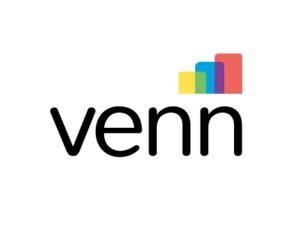The Honorable Scott Brison, the Honorable Ahmed Hussen, Mischka Jacobs and Doug Robertson at the Atlantic Leaders’ Summit in Halifax July 10th, 2017
We are reminded frequently of the demographic challenge already facing our region. As Donald Savoie said in a recent article, “we have an aging population and we have not been able to attract enough new Canadians”. We have seen all levels of government ramp up the focus and efforts to address this problem, and increasingly a variety of economic development stakeholders are joining in the effort. The Association of Atlantic Universities (AAU) recently held their 2017 Atlantic Leaders’ Summit in Halifax. The focus was on the “International Student Experience” and Venn Innovation’s CEO, Doug Robertson, and Communications and Events Coordinator, Mischka Jacobs, were there to participate, to give voice to the skills challenges facing our region’s tech sector and to share our experience as a “designated employer” under the new Atlantic Immigration Pilot program (AIPP) and as a “referral partner” under Ottawa’s Global Talent Strategy.
Raymond Théberge, President and Vice-Chancellor of the Université de Moncton, moderated the Honorable Hussen’s keynotes
The day began with UNB President Eddy Campbell reminding us that 75% of international students would like to stay in Atlantic Canada after their studies if the opportunity was there. This point was reinforced by the Hon. Ahmed Hussen, federal Minister of Immigration, Refugees and Citizenship, himself an immigrant from Somalia, who underscored the value to newcomers to Canada of finding a place in the region’s economic growth and social life. International students contribute $11.4 billion to the Canadian economy – that is more than the contribution made by the lumber industry. The Minister also stressed the tremendous social and cultural benefits to Canada of attracting and retaining greater numbers of immigrants, and leveraging that potential to help address our growing talent gap.
To this end, he noted that the Atlantic Immigration Pilot was the first immigration program in Canada’s history that directly involved employers in its development. So far over 600 employers across the region have expressed interest and more than 400 have registered as a designated employer. Venn’s message to tech companies: from our experience, this tool is very easy to use and makes the process of hiring a recent international graduate quick and effortless. It works. It worked for us–Mischka is from South Africa, recently graduated from Université de Moncton and has quickly become a valued member of our team and a champion for the opportunities for international students and New Brunswick companies alike. The biggest challenge now is to make more companies, and students, aware of the availability of this program. As CRA’s Margaret Brigley noted:
· 65% of international graduates hope to stay in Atlantic Canada following graduation;
· 78% of those who left the region would have stayed for an attractive job offer;
· only 36% of international students are aware of the programs aimed at helping them obtain permanent residency following graduation;
· only 43% of international graduates who are aware of government programs for permanent residency had heard of the Atlantic Immigration Pilot Program, of which only 1% had actually applied;
· awareness in the business community is very limited.
Recent international graduates, (left to right) Mischka Jacobs, Freya Qi and Christine Qin Yang, talk about their international experience and their transition from student to professional with Wendy Luther (far right), President & CEO of EduNova, as moderator
The Atlantic Immigration Pilot program is very new and so the awareness levels may not be surprising, but they underscore the need to step up efforts to raise awareness. Becoming a designated employer under the AIPP is a pretty straightforward process, and as an employer it positions your company to take advantage of this tool for 3 years (the duration of the pilot). We encourage tech companies, at all stages, to have a look and find out how this tool can help you grow your company while at the same time contributing to the economic growth of our region and an enriched cultural and social diversity. There are some extraordinary young individuals from all over the world here in the region, and they would like to be a part of the economic and social fabric of Atlantic Canada. For more information on how to become a designated employer under the AIPP, visit:
http://www.cic.gc.ca/english/immigrate/atlantic/index.asp
To find out more about the federal Global Talent Strategy and how it can help you quickly secure top tech talent from anywhere in the world, go to:
https://www.canada.ca/en/employment-social-development/campaigns/global-skills-strategy.html
Follow us on social on Facebook, Instagram, Twitter, LinkedIn, OR Sign up for our newsletter!




